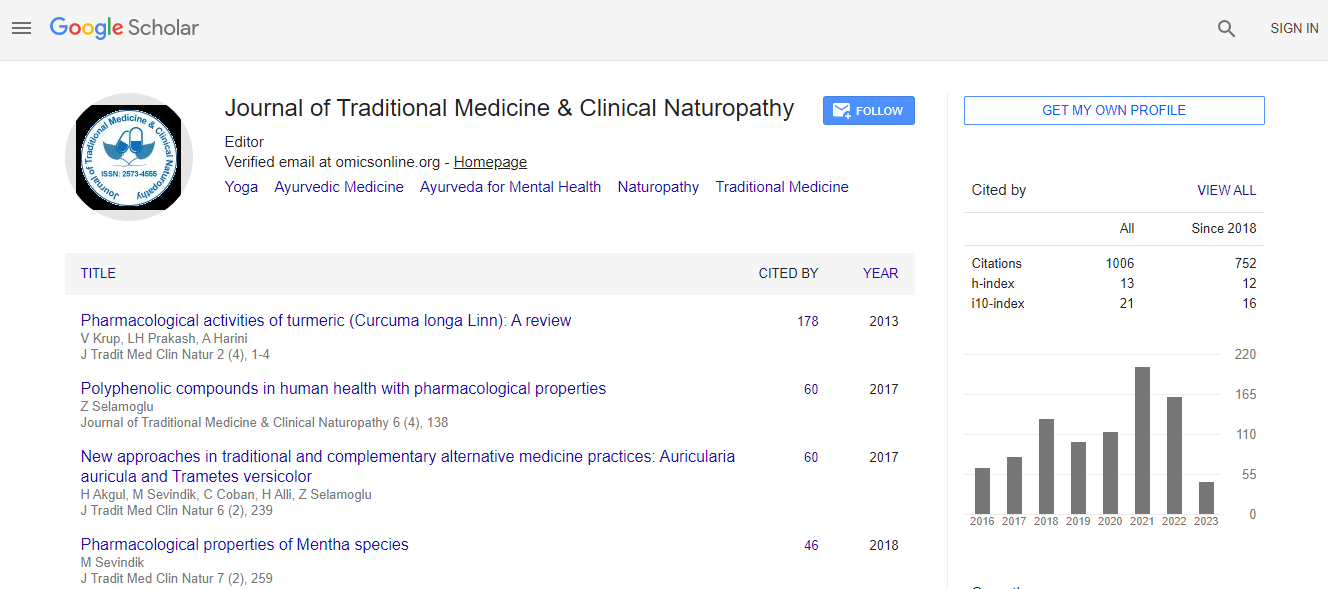Research Article
Phytochemical Analysis of Cynanchum callialatum through GCMS and LCMS
| Karthikeyan M1* and Balasubramanian T2 | |
| 1Research Scholar, Department of Pharmacy and Medical Sciences, Singhania University, Rajsathan, India | |
| 2Associate Professor, Department of Pharmacology, Alshifa College of Pharmacy, Kerala, India | |
| Corresponding Author : | Karthikeyan M Research Scholar, Department of Pharmacy and Medical Sciences Department of Pharmacy School of Pharmacy and Medical Sciences, Singhania University Pacheribari, Jhunjhunu, 333515-Rajsathan, India Tel: +91 9656111669 E-mail: karthikeyanpgt@gmail.com |
| Received November 21, 2013; Accepted December 26, 2013; Published January 02, 2014 | |
| Citation: Karthikeyan M, Balasubramanian T (2014) Phytochemical Analysis of Cynanchum callialatum through GCMS and LCMS. J Homeop Ayurv Med 3:143. doi: 10.4172/2167-1206.1000143 | |
| Copyright: © 2014 Karthikeyan M, et al. This is an open-access article distributed under the terms of the Creative Commons Attribution License, which permits unrestricted use, distribution, and reproduction in any medium, provided the original author and source are credited. | |
Abstract
Medicinal plants are still important source for drug discovery. Herbal medicines have gained importance in recent years because of their efficacy and cost effectiveness. The objective of the present study is to investigate the phytochemical present in the Cynanchum callialatum. The phytochemical analysis was done by preliminary phytochemical test for secondary metabolites, GCMS for volatile constituents and LCMS for nonvolatile constituents. The phytochemical test confirms the presents of alkaloids, flavonoids, terpenoids, tanins etc. The GCMS analysis shows the presents of 52 compounds in which some have medicinal value. The LCMS analysis shows the presents of compounds in which most of them have the medicinal properties. The present study on Cynanchum callialatum reveals the presence of various phytochemical constituents like Betulinic acid, Lupeol, Germacrone and Longiverbenone. Cynanchum callialatum may be a potential source for anticancer, antiHIV, antiinflammatory, antimicrobial drug discovery.

 Spanish
Spanish  Chinese
Chinese  Russian
Russian  German
German  French
French  Japanese
Japanese  Portuguese
Portuguese  Hindi
Hindi 
